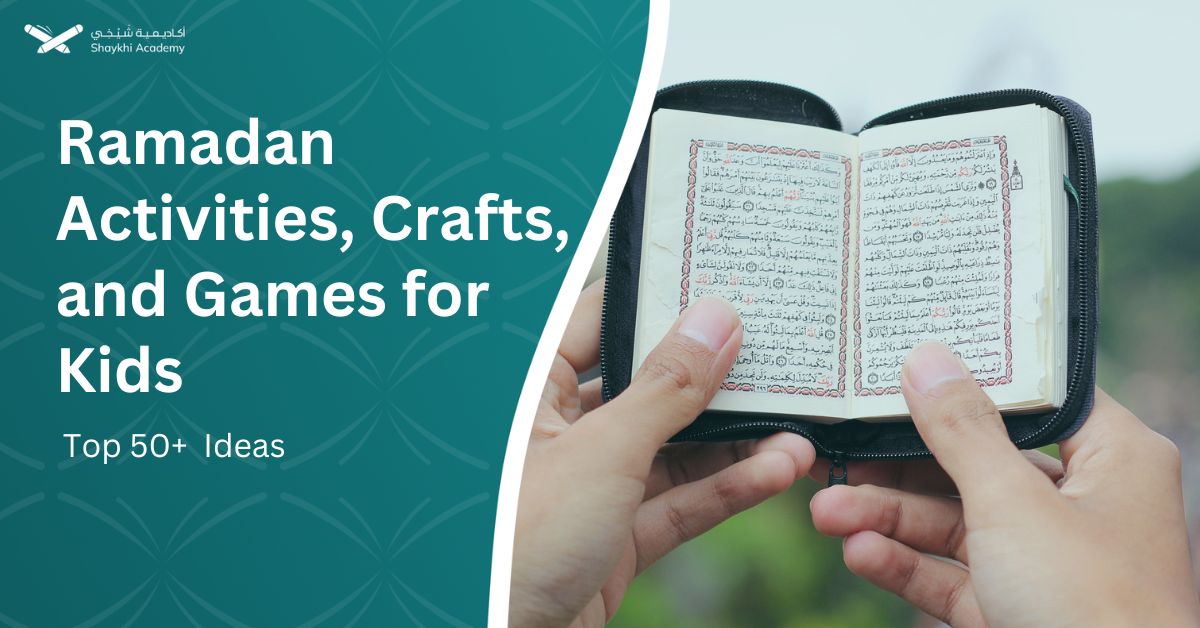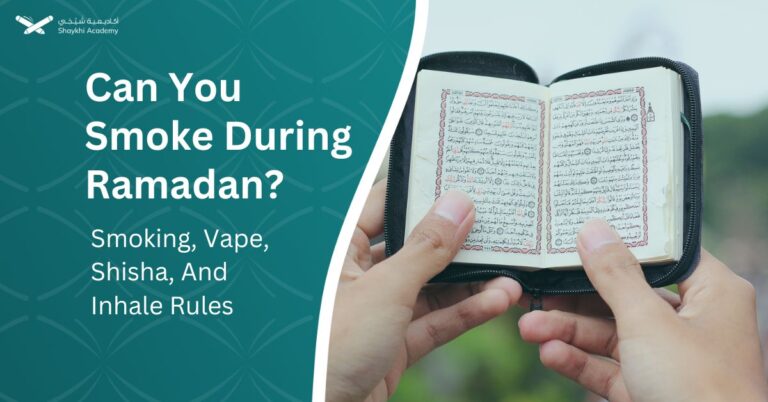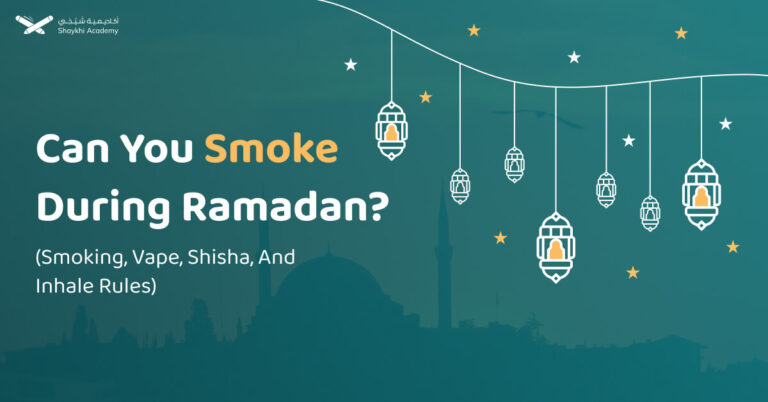Here are the best Ramadan Activities, Crafts, and Games for Kids. Dedicating activities for kids to enjoy during Ramadan holds immense significance in nurturing a love and understanding of the holy month from an early age. These activities provide children with tangible experiences that bring to life the teachings, rituals, and values of Ramadan in a manner tailored to their developmental stage.
Here are the top 20 Ramadan Activities And Games For Kids
1- Decorate the House:
Engage children in a creative exploration of Ramadan by involving them in decorating the house with Ramadan-themed ornaments and decorations. From intricately designed crescent moons to glittering stars and colorful lanterns, let their imagination soar as they craft and hang these symbols of the holy month around the house.

2- Read Ramadan Stories:
Cultivate a love for learning and storytelling by immersing children in the rich tradition of Ramadan through captivating stories and books. Choose age-appropriate literature that explores the significance of fasting, prayer, and acts of kindness during Ramadan, and spend quality time reading together as a family.
3- Cooking and Baking:
Transform cooking and baking into a meaningful bonding experience by inviting children to join you in preparing special Ramadan treats and meals. From traditional dishes like dates, samosas, and lentil soup to festive desserts like baklava and ma’amoul, involve children in every step of the culinary process, from grocery shopping to food preparation and presentation.
4- Visit the Mosque:
Deepen children’s understanding of their faith and community by taking them on visits to the mosque during Ramadan. Whether it’s for daily prayers, Friday sermons, or special Taraweeh nights, encourage children to observe and participate in mosque activities under the guidance of knowledgeable mentors.
5- Charity Work:
Instill the spirit of generosity and compassion in children by involving them in charitable activities that benefit those in need during Ramadan. Whether it’s donating clothes, toys, or food to local charities, volunteering at a soup kitchen, or organizing fundraising events, encourage children to actively participate in acts of giving and service.
6- Family Iftar Parties:
Foster a sense of unity and togetherness by hosting family iftar parties where children play an active role in the preparations and celebrations. From setting the table and arranging the food to reciting prayers and breaking the fast together, involve children in every aspect of the iftar experience.

7- Plant a Garden:
Foster children‘s appreciation for the natural world and the cycles of growth and renewal by planting a garden together during Ramadan. Choose a variety of seeds or saplings that can be easily cultivated in pots or outdoor beds, and involve children in every step of the planting process, from preparing the soil to watering and nurturing the plants.
8- Create a Ramadan Journal:
Foster children’s self-reflection and introspection by encouraging them to keep a Ramadan journal throughout the holy month. Provide them with a blank notebook or journal where they can record their thoughts, feelings, and experiences each day, as well as their goals and aspirations for the month ahead.
9- Learn Ramadan Nasheeds:
Infuse joy and celebration into children’s Ramadan experience by teaching them traditional Ramadan nasheeds (Islamic songs) that celebrate the spirit of the holy month. Choose age-appropriate nasheeds with catchy melodies and meaningful lyrics that convey messages of gratitude, faith, and community.
10- Visit Islamic Art Exhibitions:
Expand children’s cultural horizons and appreciation for Islamic art by taking them to visit Islamic art exhibitions or museums during Ramadan. Explore exhibits featuring a diverse range of artworks, including calligraphy, geometric patterns, ceramics, textiles, and architecture, and encourage children to observe and discuss the beauty and symbolism of each piece.
11- Moon and Star Toss:
Turn learning into a fun challenge by setting up a target board decorated with a crescent moon and stars. Kids take turns tossing bean bags or soft balls at the targets, earning points based on where their throws land. This engaging game not only enhances hand-eye coordination but also introduces children to the significance of the crescent moon in Islamic culture.
12- Ramadan Trivia:
Make Ramadan learning interactive with a trivia game! Prepare a mix of easy and challenging questions covering fasting, historical events, and Islamic traditions. Kids can play individually or in teams, answering questions to earn points. This game is a great way to reinforce their knowledge while making learning about Ramadan exciting and competitive.
13- Dates Race:
Challenge kids with a unique test of skill and patience! In this fun race, participants must pick up dates using chopsticks and transfer them to a bowl as quickly as possible—without dropping them. The player who moves the most dates in a set time or finishes first wins. It’s a playful way to introduce the significance of dates in breaking the fast while improving fine motor skills.
14- Ramadan Charades:
Act out Ramadan-related words and phrases in this lively game! Write down terms like “fasting,” “prayer,” “mosque,” or “iftar” on slips of paper, and have kids take turns acting them out while others guess. This interactive activity not only strengthens their understanding of Ramadan traditions but also helps develop communication skills.

Joining some Arabic classes for kids; such as Shaykhi Academy’s Arabic classes for kids, would mostly include such activities and games that help kids learn and acquire the language in a fun way.
15- Quran Challenge:
Encourage kids to strengthen their connection with the Quran through a friendly memorization competition. Set goals for children to recite or memorize verses, offering small rewards for their progress. This activity helps build their confidence in reciting the Quran while fostering a love for its teachings.
Many Quran courses for kids; such as: the Quran Hifz classes for kids at Shaykhi Academy, hold such fun competitions to encourage young children to memorize and study the Holy Quran.
16- Ramadan Pictionary:
Encourage creativity and learning with Ramadan Pictionary! Kids take turns drawing Ramadan-related words, such as a mosque, a fasting person, a lantern, or a date, while others try to guess the word. Use a whiteboard or large paper to make it more interactive.
This game not only sparks artistic expression but also deepens kids’ understanding of important Ramadan symbols and traditions. For an added challenge, set a time limit for each drawing or include both Arabic and English words to enhance their language skills.
17- Iftar Platter Puzzle:
Make learning about traditional Ramadan foods exciting with an Iftar Platter Puzzle! Print out images of popular iftar dishes like dates, samosas, lentil soup, or baklava. Cut them into puzzle pieces and let kids work individually or in teams to reassemble them as quickly as possible.
This game teaches children about different foods eaten during Ramadan worldwide while improving their problem-solving and cognitive skills. To make it more engaging, discuss the significance of each dish after they complete the puzzle.
18- Ramadan Scavenger Hunt:
Transform Ramadan into an adventure with a themed scavenger hunt! Hide small Ramadan-related objects such as mini lanterns, prayer beads, a Quran, or crescent moon and star decorations around the house or yard. Provide kids with clues or riddles that guide them to each hidden item.
For example, a clue for a hidden Quran might say, “I hold the words of Allah and guide you through life.” This game promotes curiosity, teamwork, and an understanding of Ramadan symbols while keeping kids active and engaged. You can also include a small prize at the end to motivate participation!
19- Islamic Quiz Bowl:
Turn Islamic learning into a fun competition with an Islamic Quiz Bowl! Divide kids into teams and prepare questions covering Ramadan, Islamic history, prophets, and the pillars of Islam. Questions can range from simple (“What is the meal before fasting called?”) to more challenging (“Which battle took place during Ramadan?”).
Award points for correct answers and let the team with the most points win. This game enhances Islamic knowledge, encourages teamwork, and helps kids develop quick thinking skills. You can also include bonus rounds with fun challenges, such as reciting a short Quran verse or explaining the meaning of a hadith.
20- Ramadan Relay Race:
Keep kids active while reinforcing Ramadan traditions with a fun relay race! Set up different stations representing key Ramadan activities. At one station, kids can set an iftar table with dates, water, and plates. At another, they can perform wudu (ablution) or recite a short Quran verse.
Other stations could include donating a small item (to represent charity) or performing two units of prayer (salah). Each child must complete their task before tagging the next teammate. This game not only promotes teamwork and excitement but also reinforces essential Ramadan practices in an interactive and memorable way.
Enroll Your Child in Shaykhi Academy’s Interactive Recitation Online Course.
Through engaging lessons, vibrant visuals, and personalized instruction, our Quranic recitation course for kids provides a nurturing environment where children can develop their reading skills while deepening their connection to the Holy Quran.
Our expert instructors use innovative teaching methods tailored to children’s learning styles, making the learning process enjoyable and effective.

Give your child the gift of Quranic literacy and spiritual growth by signing up for our course today!
By engaging in crafts, games, storytelling, and acts of kindness, children not only learn about the significance of fasting and prayer but also develop a sense of excitement, anticipation, and connection to their faith and community.
How To Make Ramadan Exciting for Kids?
To make Ramadan exciting for kids, it’s essential to create a joyful and engaging atmosphere that instills a sense of anticipation and celebration. Start by involving children in age-appropriate activities such as decorating the house with Ramadan-themed crafts, creating a Ramadan calendar with daily surprises or activities, and organizing special iftar (breaking fast) meals tailored to their preferences.
Incorporate storytelling sessions about the significance of Ramadan and its traditions, including stories of Prophets and companions. Encourage children to participate in acts of charity and kindness, such as preparing meals for those in need or donating toys and clothes to less fortunate families. Finally, make sure to praise and reward children for their efforts and accomplishments during Ramadan, fostering a sense of pride and accomplishment in their spiritual journey.
Creating excitement for kids during Ramadan involves embracing the spirit of the holy month through a variety of engaging activities, games, and crafts. By fostering an atmosphere of celebration and togetherness, children can develop a deeper understanding and appreciation for the significance of Ramadan in their lives.
Through a mix of traditional rituals, family gatherings, and creative expression, parents and caregivers can cultivate a sense of joy and anticipation that makes Ramadan a memorable and meaningful experience for kids of all ages.
Also Read: Top Ramadan Facts For kids.

















































